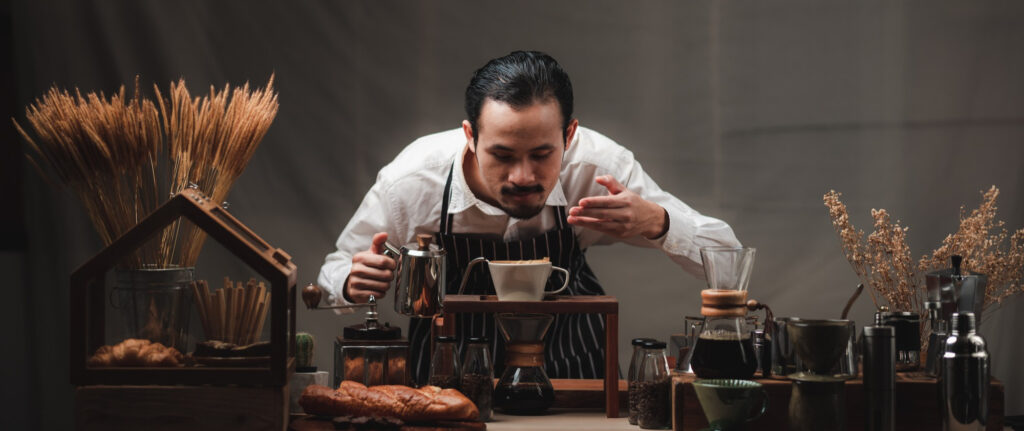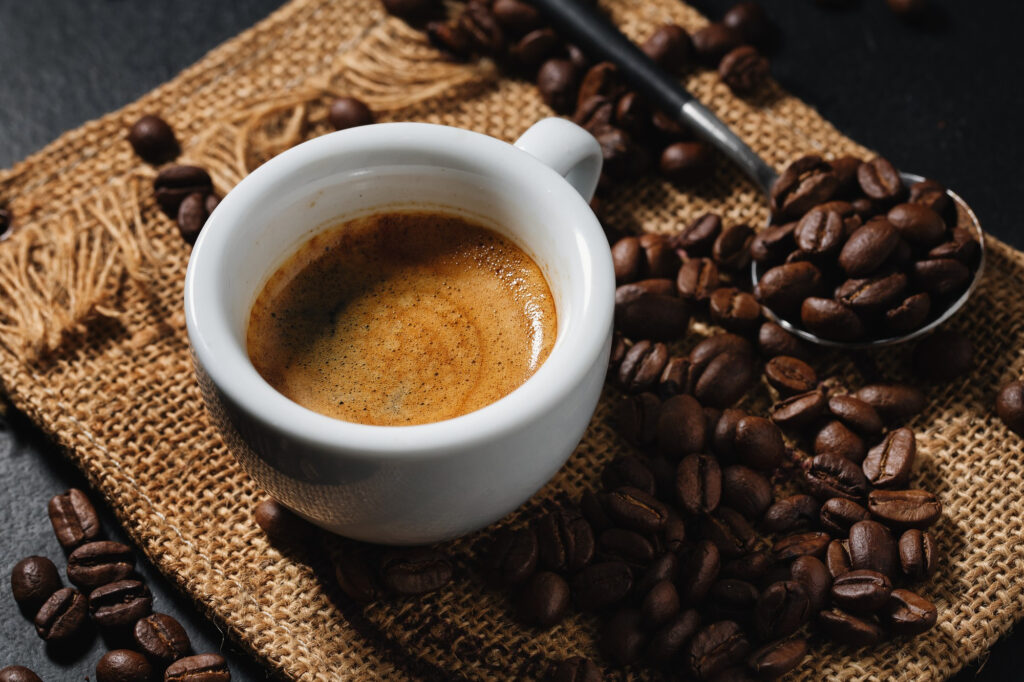Filter coffee is a drink prepared by the method of portioned or simultaneous spilling of water through a layer of coffee located on the filter.
You can find this definition concerning a prover (for example, a V60 funnel), a drip coffee maker (butch brew), an immersion funnel, and an AeroPress. The main parameters characterizing such coffee will remain unchanged. Thanks to filtration, the drink turns out to be cleaner, does not contain fundamental coffee particles, and it is also easier to find flavor notes (descriptors) in it.

Melitta Benz embodied and patented the idea of separating coffee grounds and getting a cleaner drink using a filter in 1908. A housewife from Dresden used blotting paper from a school notebook and a pot with a perforated bottom – this was the prototype of the first coffee filter.
Filters
You can use paper, metal, and cloth filters to brew black coffee. The choice of material determines the filtration properties and affects the taste of the final drink.
The paper filter is a favorite in the professional coffee world—paper filters for most alternative brewing methods and automatic coffee makers. Density, shape, and production technologies make this material so popular and bring variability to the taste of the final drink. But it is always expected to be cleaner, more complex, and multifaceted than prepared using other materials. We do not recommend using filters made of natural unbleached paper because it conveys the taste of coffee.
The metal filter passes the enormous amount of coffee particles and coffee oils. The drink turns out to be more dense, tactile rough. The advantage of such filters is their durability. The primary condition is to clean them from the remnants of used coffee regularly and thoroughly. However, our observations show that the perforation wears out and changes its properties after a few years, the intensity of use. We have not yet found scientific evidence, so that we will leave it to you for reflection.
A fabric filter is another option for reusable material, the service life of which depends on care. The fabric’s fibers retain most coffee particles but allow some oils to pass through. As a result, the drink turns out clean and smooth but with a pronounced long aftertaste.

Expected fortress
The 2.00% TDS cutoff excludes espresso and percolated coffee from the realm of filter coffee. At the same time, the ideal cup is in the range of 1.15-1.35% strength, according to research by the Coffee Brewing Institute. This range was set in 1970 and remains the consumer standard for filter coffee, which slightly shifts depending on cultural preferences.



